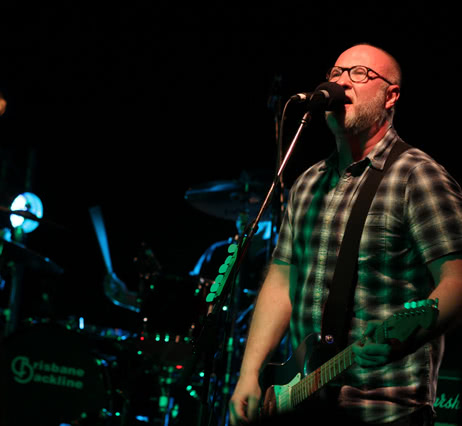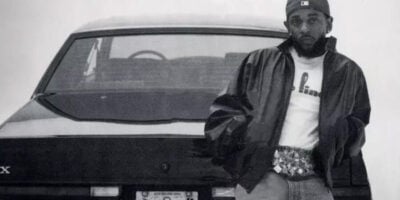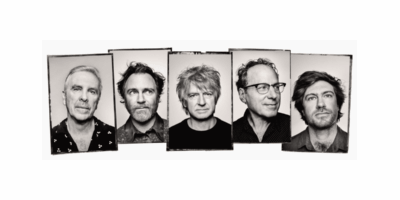In what proved a big year, 2012 saw Bob Mould touring for the 20th anniversary of Sugar’s breakout masterpiece Copper Blue, as well as releasing his glorious return to form, Silver Age.
Friday night, the pioneering granddaddy of alternative rock packed out The Zoo in Brisbane for a night of hard indie classics followed by a morning-after of numbing tinnitus.
While there was much to love about the gig there was, unfortunately, also much to dislike.
Mould emerged wearing a checked short-sleeved shirt and round, black-rimmed glasses. His beard immaculately trimmed, he looked more like a high-school math teacher than an underground rock legend.
Supporting Mould were Jason Narducy (bass and backing vocals) and Jon Wurster (drums)—the same rhythm section he played with on Silver Age.
The band quickly launched into the epic Copper Blue opener “The Act We Act”, before that track collided with “A Good Idea”. In quick succession they worked through “Changes” and “Helpless”, then a sludge-rock version of “Hoover Dam”. In one quick block, Mould had torn through the entire first half of Copper Blue.
Despite the ear-melting volume and the instrumental power of the trio (particularly Wurster’s frenetic drumming) the tracks sounded strangely thin and flat.
Mould’s vocals seemed tentative and lacking in his trademarked passionate intensity, while Narducy’s backing vocals were woefully off key.
Moving on from his Sugar days, Mould proceeded to play a selection of tracks from Silver Age, including the prima donna rocker bitch-slap, “Star Machine” and the emerging classic, “The Descent”.
It was immediately clear that the trio were better suited to performing the Silver Age tracks than the early Sugar songs.
This may have been something to do with the sparser production style of the new album or the band’s familiarity with the new tracks. Whatever the reasons, the trio was tighter, the sound clearer, and Mould and Narducy’s harmonies much better.
Despite their collective energy—a crazy-eyed Mould spinning and belting his guitar during solos—they seemed to be working through their set in a perfunctory and no-frills manner. Each track slammed into the following one with Mould rarely pausing to address the crowd.
After a set of tracks from the new album they moved on to a selection of old Hüsker Dü favourites, including “Could You Be The One”, “I Apologize”, and “Chartered Trips”. By that point the crowd was bouncing off each other, clearly loving the best-of setlist Mould was delivering.
The first encore saw the band pumping out a rousing version of “Egøverride” from Mould’s eponymous solo record, then Sugar’s “If I Can’t Change Your Mind”, before finishing with Hüsker’s classic “Celebrated Summer”.
Second encore saw Mould serve up a trio of songs from 1985’s Flip Your Wig, including the title track, “Hate Paper Doll” and the track of the night, “Makes No Sense At All”.
One would have to be particularly pedantic to fault setlist. Aside from the absence of any tracks from Candy Apple Grey, all major phases of Mould’s epic career were represented, from Zen Arcade through to Silver Age.
The gig did, however, prove to be disappointing for a few reasons. Firstly, the mix was awful, sacrificing sound clarity for sheer volume: the drums often overwhelmed the mix; at times you could not even hear the guitar solos, and too often the volume of Narducy’s (largely off key) backing vocals seemed to take over.
Secondly, Mould’s own vocal work was erratic. It wasn’t as though his range had diminished with age, because on tracks like “Could You Be The One” and “Makes No Sense At All”, he did hit his famed level of passion and power.
As disappointing as it is to say, it simply seemed as though he wasn’t really into the gig.
Those criticisms aside, Friday’s gig was a rare opportunity to see one of the most influential figures of the indie music world, and as close as most of us will ever get to experiencing what it must have been like to see Hüsker Dü or Sugar in their prime.


































